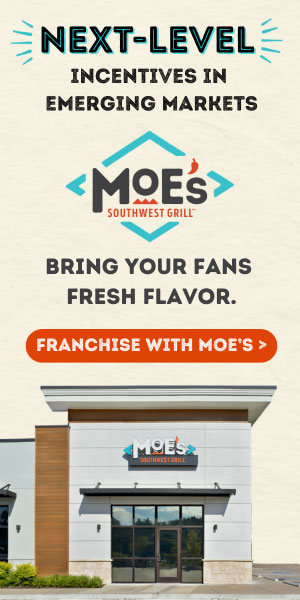Multi-Unit Franchise Ownership is Rising Despite Economic Uncertainty

The early months of 2025 have been marked by a high level of economic angst, with public polling suggesting rising concerns over inflation and the impact of tariffs, along with a precipitous drop in consumer sentiment. While seasons of economic instability have historically been ill-suited for fledgling entrepreneurship, one type of business ownership bucks the trend: multi-unit franchising.
As of 2025, multi-unit ownership now accounts for more than half of the franchise industry — representing a growth of more than 100 percent since 2019.
These numbers shouldn’t surprise anyone. Multi-unit ownership is a logical way to mediate the era’s economic uncertainty and to provide a judicious path toward business growth. For entrepreneurs who dream of multi-unit ownership or expansion, franchising provides some built-in advantages.
Operational consistency is the key
One of the hallmarks of franchising is operational consistency. Simply put, working within a franchise ecosystem provides local owners with proven models to get their business up and running as smoothly as possible. This includes everything from training to financial benchmarks, marketing collateral to clear internal processes. When executed properly, these proven models should make the daily operation of the company frictionless.
Not only is it frictionless, but it’s also replicable. Once mastered, the model that works for one local franchise location can be copied elsewhere, meaning the owner who wants to open a second unit or even several new units, isn’t starting from scratch. They already know how to execute their new location because it’s something they’ve done before.
Amidst economic uncertainty, building a new business from scratch may seem risky, but replicating a proven model can provide entrepreneurs with greater confidence for business expansion.
Growing into new and untapped markets
Speaking of expansion, another reason why multi-unit franchising is on the rise, even during a season of heightened economic tension, is that the franchising model provides owners with a roadmap for moving into new and untapped markets.
Franchises come with built-in name recognition. So, rather than having to launch an unknown brand, entrepreneurs get to carry a proven brand with them no matter where they go. When starting off in a new state or a new market, franchise owners enjoy a leg up with an established identity and an existing customer base. Meanwhile, the resources provided by the franchise platform can help owners navigate state-specific regulatory needs, including permitting, which helps streamline the expansion process.
Obtaining financing for growth
A final advantage that franchising provides entrepreneurs looking to scale a business is the relative ease of obtaining financing for growth opportunities. Because they are proven names with dependable models, franchises present a lower level of risk for investors, which often means more capital is available for new business owners looking to accelerate their growth.
The flexible financing available to franchise owners, along with the resources and support shared within the franchise network, combine to facilitate smart, scalable growth. This provides a path forward to opening multiple businesses spanning various markets and geographies.
During a time of economic tumult, that’s exactly what many aspiring business owners seek. Multi-unit ownership remains one of the most promising venues to pursue entrepreneurship on a broad scale.
Michael Moorhouse is president of Mosquito Shield, part of the Five Star Franchising platform of home service brands.
Share this Feature
Recommended Reading:
| ADVERTISE | SPONSORED CONTENT |
FRANCHISE TOPICS
- Multi-Unit Franchising
- Get Started in Franchising
- Franchise Growth
- Franchise Operations
- Open New Units
- Franchise Leadership
- Franchise Marketing
- Technology
- Franchise Law
- Franchise Awards
- Franchise Rankings
- Franchise Trends
- Franchise Development
- Featured Franchise Stories
| ADVERTISE | SPONSORED CONTENT |

$200,000
$425,000





 The multi-unit franchise opportunities listed above are not related to or endorsed by Multi-Unit Franchisee or Franchise Update Media Group. We are not engaged in, supporting, or endorsing any specific franchise, business opportunity, company or individual. No statement in this site is to be construed as a recommendation. We encourage prospective franchise buyers to perform extensive due diligence when considering a franchise opportunity.
The multi-unit franchise opportunities listed above are not related to or endorsed by Multi-Unit Franchisee or Franchise Update Media Group. We are not engaged in, supporting, or endorsing any specific franchise, business opportunity, company or individual. No statement in this site is to be construed as a recommendation. We encourage prospective franchise buyers to perform extensive due diligence when considering a franchise opportunity.